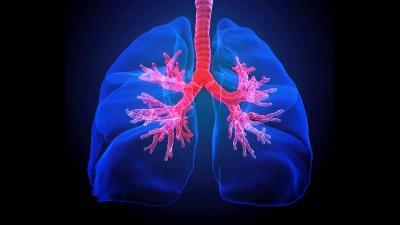National Scientists Group Asks National Institutes of Health to Investigate Study That Resulted in Deaths of 100 Animals

LUBBOCK, Texas — The Physicians Committee for Responsible Medicine filed a complaint today, May 21, 2025, with the National Institutes of Health’s Office of Laboratory Animal Welfare requesting an investigation of Texas Tech University Health Sciences Center’s study of the effects of ginger root extract on pain in rats. The group also sent a letter to Texas Tech University President Lori Rice- Spearman on April 14, 2025, requesting the shuttering of any additional animal experiments currently underway by the same researchers.
For the experiment, 100 rats were divided into two groups that underwent different surgical procedures. They then received either ginger extract or corn oil as a control. To assess pain, researchers looked at pictures of the animals to determine whether—and to what extent—they were grimacing. The study authors also claimed to assess “emotional pain” by interpreting vocalizations made when the animals’ paws were pinched with forceps. All the rats were killed after five weeks, and blood, brain, and colon tissue samples were collected.
“The intervention in this case, ginger, has been consumed by humans and regarded for its health benefits for thousands of years,” Stephen Farghali, research advocacy coordinator for the Physicians Committee wrote in the complaint. “Human studies … not animal studies, are needed to move the science forward,” he said.
Federal policy requires that “the animals selected for a procedure should be of an appropriate species and quality and the minimum number required to obtain valid results. Methods such as mathematical models, computer simulation, and in vitro biological systems should be considered.”
Furthermore, the Guide for the Care and Use of Laboratory Animals states that the “use of laboratory animals for biomedical research, testing and education is guided by the principles of the Three Rs” (refinement, reduction, and replacement of animal use wherever possible) and explicitly endorses “consideration of alternatives … to reduce or replace the use of animals” and the “use of appropriate species.”
Alternatives to animal experiments were apparently not considered for the ginger study, Farghali said, since this type of research has already been done in humans. Additionally, he said, animal experimentation does not typically translate to reliable knowledge of human biology because of the differences that exist between species.
The Physicians Committee requested that Texas Tech and NIH investigate the matter and order corrective action, in addition to suspending any animal studies currently underway by the researchers of the ginger study.
Over 85% of more than 2,000 respondents polled in September 2024 in a Physicians Committee/Morning Consult survey agreed that animal-based research should be phased out in support of superior methods that do not use animals.
In contrast to animal experimentation, modern and versatile human-relevant approaches, such as clinical research and observational studies, tissue chips, organoids, computational modeling, and high-throughput screening, have proven effective in drug development and disease modeling.
Media Contact
Kim Kilbride
202-717-8665
kkilbride[at]pcrm.org
Founded in 1985, the Physicians Committee for Responsible Medicine is a nonprofit organization that promotes preventive medicine, conducts clinical research, and encourages higher standards for ethics and effectiveness in education and research.







